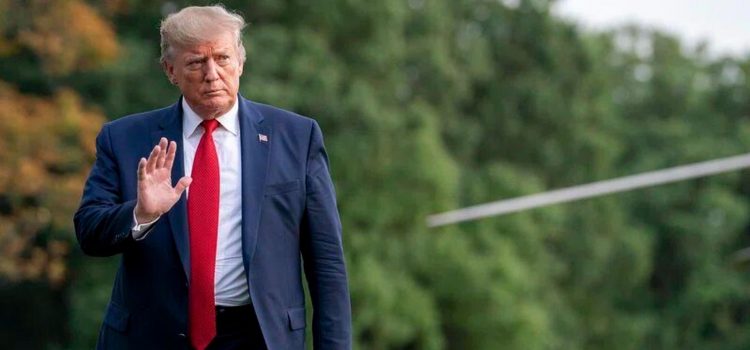

This article is an excerpt from the Shortform book guide to "Jesus and John Wayne" by Kristin Kobes du Mez. Shortform has the world's best summaries and analyses of books you should be reading.
Like this article? Sign up for a free trial here.
What’s the relationship between Donald Trump and Christianity—especially evangelicalism? Why do so many Christians endorse him?
In Jesus and John Wayne, Kristin Du Mez traces the development of evangelicals’ conception of masculinity since the 1900s, outlining how the genteel masculinity of Victorian-era Christianity transformed into the militaristic masculinity that led evangelicals to embrace Trump wholeheartedly.
Read more to get Du Mez’s take on the intriguing link between Donald Trump and Christianity.
Trump and Christianity
Following the 2016 US presidential election, pundits argued that the 81% of evangelical Christians who voted for Donald Trump over Hillary Clinton viewed him as the lesser of two evils. But, according to historian Kristin Du Mez, this explanation is misguided. She argues that evangelicals endorsed Trump because he was the paradigm of militant masculinity that became orthodox among evangelicals in the last century.
To understand the connection between Trump and Christianity, Du Mez says we must take a look at history. A Calvin University professor of history and gender studies, Du Mez writes that the war mentality that evangelicals developed in the wake of 9/11 helped fuel evangelical support of Trump in the 2016 election. We’ll examine how Barack Obama’s perceived attacks on religious liberty further entrenched a sense of embattlement among evangelicals that would ultimately propel them to embrace Trump as the fulfillment of their militaristic view of masculinity.
The Precursor: Obama’s Alleged Attacks on Religious Liberty
Du Mez writes that Obama angered evangelicals even before his 2008 election. For example, she points to Obama’s qualified defense of his pastor, Reverend Jeremiah Wright, who used the phrase “God damn America” in a sermon railing against the US’s increased militarization. Because he defended Reverend Wright, evangelicals viewed Obama as lacking in the patriotism and love of country that they so dearly valued.
(Shortform note: Reverend Wright continued to accrue controversy for a series of remarks made between 2008 and 2011. For instance, following Israel’s 2008 invasion of Gaza, Wright remarked in an interview that “them Jews ain’t gonna let me talk to [Obama],” a comment which critics deemed conspiratorial antisemitism.)
However, this sense of evangelical embattlement grew yet stronger during Obama’s administration, as evangelicals viewed many of his policies as attacks on religious liberty. For instance, Obama’s Affordable Care Act (ACA) mandated coverage of contraceptives—a provision that, according to evangelical Christians, endangered their right to refuse to participate in practices contrary to their religion. More importantly, Du Mez notes that evangelicals often directed their ire toward Obama for the 2015 Supreme Court ruling that federally legalized same-sex marriage, again viewing it as an affront to religious freedom.
(Shortform note: In the wake of Donald Trump’s administration, which saw conservatives take a six-to-three majority on the US Supreme Court, conservative voters have won several perceived victories for religious liberty, contrary to the Obama years. For example, in 2023 the Supreme Court ruled in favor of a Colorado web designer who refused to create websites for same-sex weddings—a ruling that progressives lamented as a blow to LGBTQ+ rights and conservatives celebrated as a win for religious freedom. Additionally, the Court ruled in favor of postal worker Gerald Groff, who lost his job at the US Postal Service for refusing to work on Sundays.)
The Culmination: The Election of Donald Trump
In light of evangelical frustration toward Obama, it initially seemed that an evangelical conservative—such as Senator Ted Cruz of Texas, Senator Marco Rubio of Florida, or Governor Mike Huckabee of Arkansas—would win the Republican nomination. Yet, despite the surplus of evangelical candidates to choose from, Trump—a candidate who, Du Mez points out, was a thrice-married adulterer, contrary to evangelicals’ professed family values—was growing popular among evangelicals in July 2015. According to polls, 20% of white evangelicals preferred Trump as the Republican candidate, compared with 12% for Huckabee, 11% for Jeb Bush, and 5% for Cruz.
(Shortform note: While Trump already enjoyed strong support from evangelicals in the summer of 2015, his support from other Republican voters was even stronger: 24% of all Republican voters favored Trump for the Republican nomination, compared to 20% of evangelical voters. So, it stands to reason that non-evangelical Republicans were initially more supportive of Trump than evangelical Republicans.)
However, unlike the other evangelical candidates, Trump explicitly tapped into the militaristic aspect of evangelicalism. To show as much, Du Mez points to Trump’s 2020 convocation speech at Liberty University—the US’s largest evangelical university, founded by Jerry Falwell Sr. During his speech, Trump asserted that Christianity was “under siege” and he would protect it by vastly strengthening the military. Only three days later, Liberty President Jerry Falwell Jr. became the first prominent evangelical leader to endorse Trump, claiming that America needed a leader, not a Sunday school teacher—an endorsement that earned Trump the support of 37% of evangelicals, according to polls.
(Shortform note: Trump continued to use militaristic language well into his presidency. For example, he frequently lamented the alleged “war on Christmas,” claiming that non-Christians wanted to replace the phrase “Merry Christmas” with “Happy Holidays.” In an interview, Trump took credit for “[leading] the charge” against this “assault” on Christmas, further tapping into the militaristic language embraced by evangelicals.)
Du Mez acknowledges that Trump experienced initial pushback from evangelical leaders. For instance, Russell Moore—editor-in-chief of Christianity Today and former President of the Southern Baptist Convention’s Ethics and Religious Liberty Commission—criticized Trump’s anti-immigrant mentality and likened him to a “Bronze Age warlord.” But most evangelical leaders eventually fell into line: James Dobson endorsed Trump just before the election, and Wayne Grudem, co-editor of Recovering Biblical Manhood and Womanhood, endorsed Trump as a “morally good choice” and a patriot.
(Shortform note: Although many evangelical leaders eventually fell into line to support Trump, the same isn’t true of the leader of the Roman Catholic Church, Pope Francis. For example, Pope Francis harshly criticized Trump’s proposed immigration plan of building a wall along the Mexican-American border, arguing that those who think only about building walls are not Christians. This criticism continued into Trump’s presidency, with Pope Francis in 2017 lambasting Trump’s decision to rescind Obama’s Deferred Action for Childhood Arrivals program (DACA) that protected undocumented immigrants who arrived in the US as children.)
Du Mez notes that the result of Trump’s support from leaders like Dobson and Grudem was striking: 81% of white evangelicals voted for Trump, propelling him to victory in a narrow race over Hillary Clinton. And, Du Mez argues, support for Trump didn’t involve hypocrisy for evangelicals but an expression of their deepest values—namely, the brash, militant masculinity that had been growing stronger for the past century.

———End of Preview———
Like what you just read? Read the rest of the world's best book summary and analysis of Kristin Kobes du Mez's "Jesus and John Wayne" at Shortform.
Here's what you'll find in our full Jesus and John Wayne summary:
- The real reason why Donald Trump won the 2016 presidential election
- An analysis of the four historical eras of evangelical masculinity
- The effect that the first and second World Wars had on evangelicals






